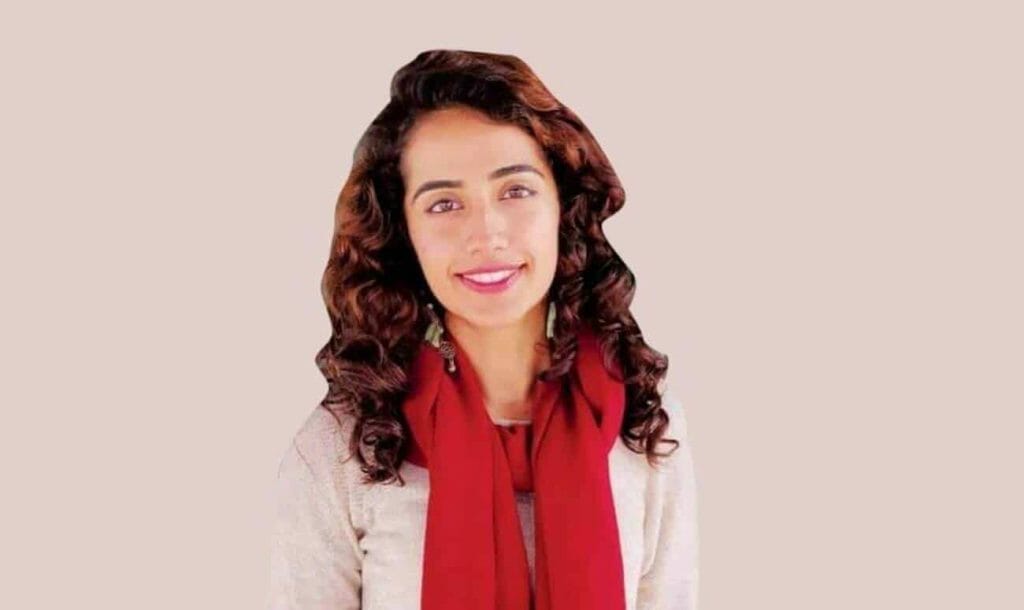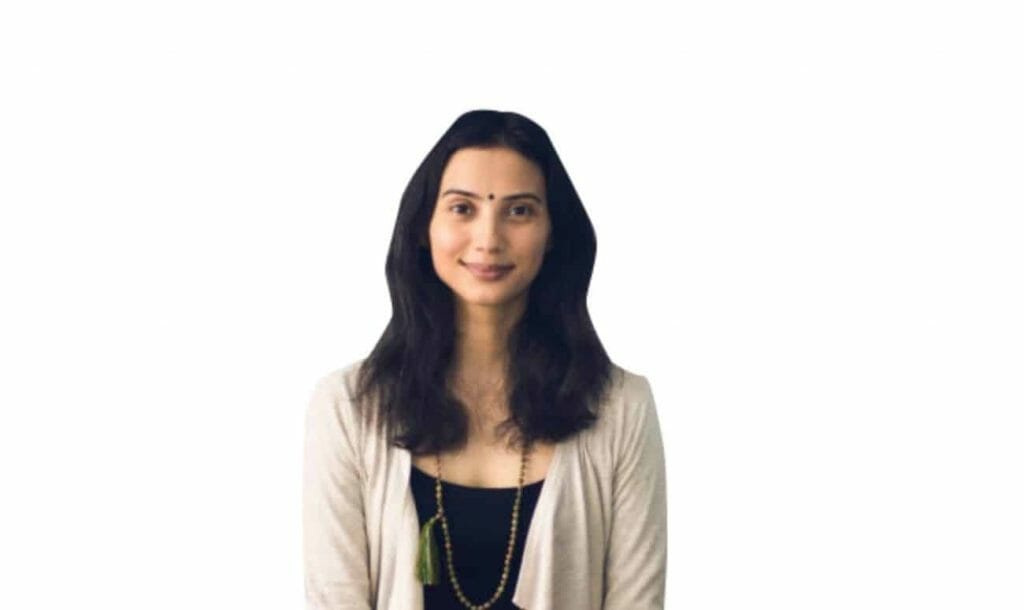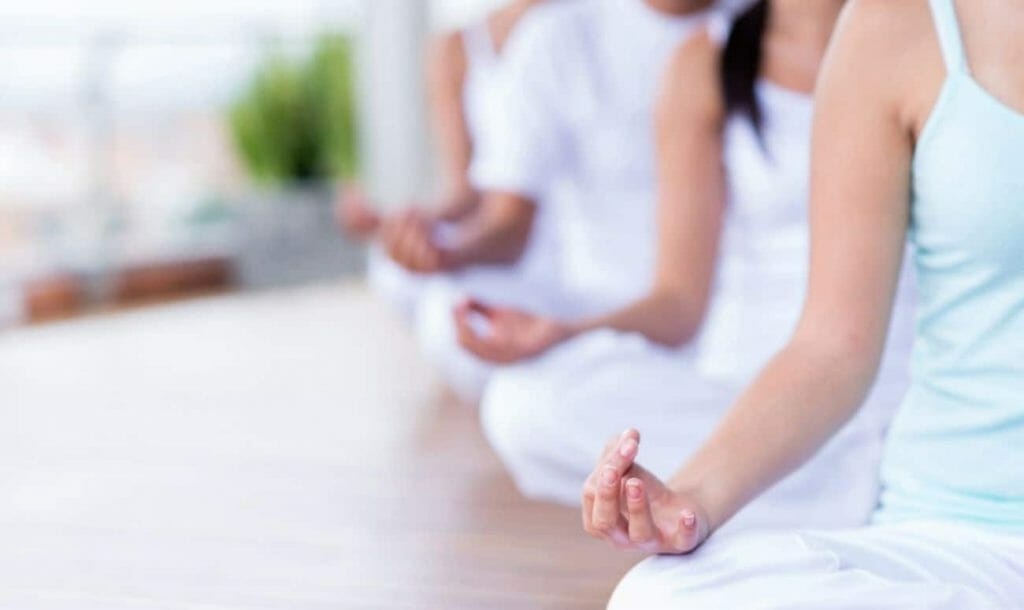How is yoga connected to mindfulness? How does yoga help during COVID? What is the best way to meditate? All these questions linger in our minds and the truth is still in a gray area. Mindfulness and yoga expert Diksha Lalwani puts an end to these confusing questions with her insightful and practical tips. Here’s what she said during the ThinkRight.me webinar on 19th June.
Is yoga a prerequisite to meditation? Or can we practice meditation without yoga?

Diksha: One can surely practice meditation on its own. Yoga when done with meditation can add to its benefits and overall experience. For me, meditation came before yoga, and I can feel that the reverse is also true. Meditation helped enhance the benefits of yoga for me, I could sit for a longer time to meditate, I would not feel cramped because my body flexibility was increased. That being said, meditation can be one by itself as well.
What is the best time to practice yoga?
Diksha: Morning is the best time. Scientifically speaking, the body is detoxing in the morning, it’s flushing out toxins, its metabolism is high, and yoga helps in this detoxification process. In addition, there is more energy in our body when the sun is rising, the environment is more positive in the morning.
When we talk about practicality, people in cities hardly have time for self-care once their day begins, so it’s better to start off your day with this practice, rather than struggle to make time for it later in the day.

Is guided meditation better than meditating by yourself?
Diksha: If you’re just starting with meditation, you might find it difficult to do it by yourself, hence guided meditations can be of great help there. Slowly, the more you meditate, the more independent your soul becomes. Then you might no longer need the handholding of guided meditation. It will come naturally to you. But it really boils down to preference, some long-time practitioners still prefer guided meditation, because they need that voice to help them reach a meditative state.
How can I begin my yoga practice?
Diksha: The best way to begin is to get a tutor. If a yoga teacher can come down to your place, early in the morning to teach yoga, then nothing like it. That way you’ll be regular and get to learn in-depth about the practice. Alternatively, practicing at a yoga studio is also a good way to begin. Here, you have to be disciplined to go to the studio and practice regularly. Once you’ve practiced long enough, you can practice it on your own as well.
How to stay mindful during yoga and not simply turn it into a form of exercise?
Diksha: A lot of people are unaware of how to bring yoga and spirituality together. There are a couple of ways to go about this. The first is, get your training with an instructor who themselves sees yoga as a mindfulness activity. They will help you learn yoga the right way. Also, if you’re practicing it alone, make it a point to end your yoga session with meditation. That is key to maintaining inner balance and experience mindfulness.
After COVID, I’ve been experiencing a lot of stress, and certain fear that something bad might happen. How do I overcome this?

Diksha: First of all, knowing that you’re not in this battle alone helps a lot. Knowing that there are people who share the same stress, the same fear as you, takes a lot of load off the head. Simply admit to yourself, that it’s okay to feel this way. Know that you have a higher self that can walk you through this and help you think positively. Your body has been through a lot, so just be mindful of what you do and what you eat. Be with yourself, respect your body, and take very good care of it.
How can people take care of themselves while they are socially distancing during COVID?
Diksha: I would highly recommend meditating three times a day. It’s a very good way to ease the active mind as well as combat loneliness during isolation. It helps minimise negative thoughts and keep the mind still for some time. You can also practice Shavasana while listening to a guided meditation. Allow your body to rest and engage your mind with meditation. This is the best way to take care of yourself during COVID self-isolation.
How to stay consistent with yoga and meditation practice?
Diksha: Here the real question is, what do we want in our lives? If self-exploration or inner journey is not your priority, then your practice of yoga or meditation will lack discipline. If your priority is something else, it is natural that your time and attention will divert that way. Not spending enough time on your self-care, will eventually push you towards a burn-out, so once you realise that everything begins with the self, you’ll naturally be inclined towards mindfulness. It will be as natural as eating food and brushing teeth, you will not have to make time for it, it just becomes a part of your life.
What can I do when I find it difficult to follow the instructions of guided meditation?
Diksha: There needs to be a sense of surrender in the mind. It often happens that our minds become too rigid, and we cannot resist the instructions. Allow yourself to trust the instructions, the flow, and the process. It might take you to a better place, it might not take you anywhere. But, the first step is to trust, open your mind and heart, and absorb the instructions.
We hope her responses answered some of your questions too.
Read more: Did You Know That Vishuddha Chakra Helps You Express Yourself Better?
Like & Follow ThinkRight.me on Facebook, Instagram, Twitter, and Telegram to stay connected.






























